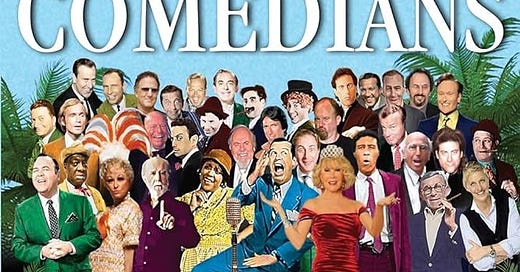I’ve written essays here—only somewhat tongue-in-cheek—about the meaning of “stand-up comedy” and the origins of stand-up.
My topic today is entirely different: it’s the origins of “stand-up comedy.”
The question arose in the comments on my piece about stand-up as a theatrical form: why is “stand-up comedy” called that? The obvious root is that stand-ups stand up in front of an audience—in the early 20th century, they were “front-cloth” comedians, in front of the curtain at vaudeville or variety shows—delivering jokes or monologues directly, without song or dance.
But a commenter argued otherwise:
[They] were called stand-ups not because they stood up, but because they worked in clubs associated with organized crime and in order to work there they had to be considered a "stand-up" type of guy. Surprising, right?
I had come across a version of this story once before, in Kliph Nesteroff’s book, The Comedians:
The Mob essentially created the term “stand-up comic”—according to eighty-six-yea…
Keep reading with a 7-day free trial
Subscribe to Under the Net to keep reading this post and get 7 days of free access to the full post archives.



